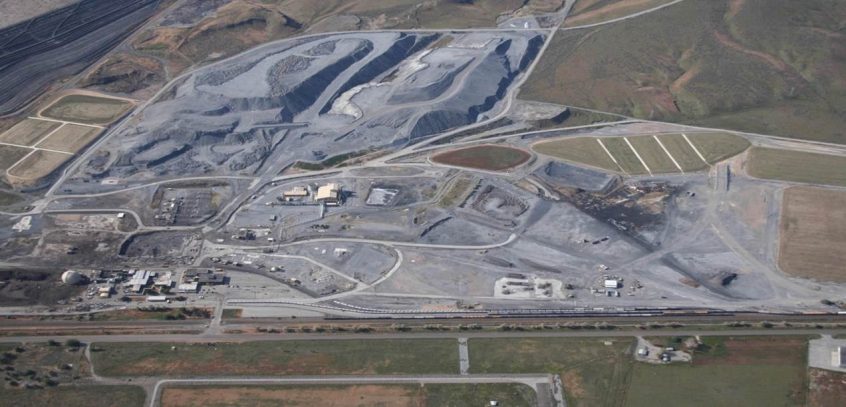OFFICIAL PRESS RELEASE
January 11, 2021
UNITED STATES SUPREME COURT DECISION CONFIRMS TRIBAL JURISDICTION OVER FMC
Fort Hall- Today, the United States Supreme Court of the United States rejected FMC Corporation’s final appeal to contest the jurisdiction of the Shoshone-Bannock Tribes to regulate storage of approximately 22 million tons of hazardous waste on the Fort Hall Reservation at the Eastern Michaud Superfund site west of Pocatello, Idaho.
Chairman Devon Boyer, of the Fort Hall Business Council stated, “The Tribes are very pleased that the Supreme Court of the United States did not find any merit to FMC’s appeal and that FMC is finally required to honor their agreement to comply with Tribal jurisdiction.”
By denying certiorari, the U.S. Supreme Court defers to the findings of the Shoshone-Bannock Tribal Courts and the Ninth Circuit Court of Appeals affirmation of the District Court’s findings requiring FMC to comply with tribal jurisdiction. In 1998, FMC voluntarily agreed to conditions of a Tribal annual permit but after four years, when FMC closed business operations in 2002, they refused to honor their agreement and left their hazardous waste within the Reservation. During this time the Tribes created the Shoshone-Bannock Tribes’ Waste Management Act, which spelled out requirements for companies who generate or store waste on the reservation, including monitoring of sources of contamination.
Chairman Boyer further adds, “This decision helps all of Indian Country in efforts to protect Tribal lands and natural resources as well as the betterment of all people of southeast Idaho. When industry enters into a voluntary relationship within tribal lands, they must comply with tribal regulations even when the EPA and/or states may have their own regulatory presence.”
Councilman Lee Juan Tyler emphasized the positive impact of the decision on protecting the environment, “This decision furthers the Tribes’ efforts to protect the water and natural resources of the Reservation and surrounding communities. This is a victory for Mother Earth and the Tribes’ ability to protect our water and environment.”
In 2005, the Shoshone-Bannock Tribes filed suit in the U.S. Idaho Federal District Court to force FMC to comply with its agreement to obtain the annual Tribal permit. Since then, both Tribal and federal courts have consistently ruled that FMC is required to comply with the voluntary agreement they entered into with the Tribes. FMC has appealed every court ruling. Now, almost twenty years later, no more appeals are available to FMC.
Council member Nathan Small acknowledged the diligent work on this case by Tribal leaders and staff, “We are grateful for the leadership and teamwork completed by our prior Tribal Council members, our Land Use Policy Commissioners, Environmental Waste Management Program staff, contractors, and attorneys since 1998.”
Background:
The Shoshone-Bannock Tribes are a federally recognized Indian tribe. Under the terms of the Fort Bridger Treaty of 1868, the Tribes today have sovereign authority over the Fort Hall Reservation.
The Fort Hall Reservation spans 840 square miles in southeastern Idaho, and ninety-seven percent of it is either tribal land or land held in trust by the United States. The Portneuf River flows through the Reservation, and the Tribes and off-reservation residents rely on the river for fishing and recreational uses, and the Fort Hall Bottoms along its northern bank, for subsistence fishing, hunting and gathering.
This area is vital to the Tribes’ historical and contemporary cultural practices, and religious and ceremonial uses, including the annual Sundance held every July. For over 50 years, from 1949 until 2001, FMC owned and operated an elemental phosphorous production plant—the largest in the world. Virtually all of the plant site is on fee land owned by FMC on the Reservation. During its operational years, FMC obtained or mined raw materials for its plant from tribal and allottee lands on the Reservation. And for that entire period, FMC used its fee lands as a dumpsite for its phosphorus production wastes.
Submitted photo depicting an aerial view of the FMC Corporation, 2002

